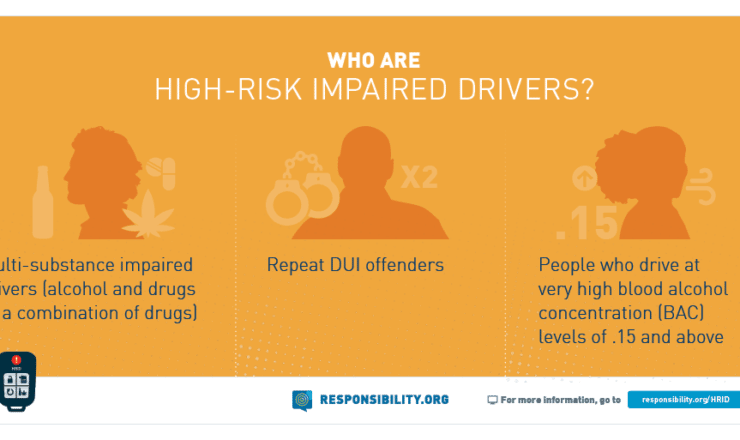The Promise of Pre-Trial Intervention Programs
Many impaired drivers have substantial substance use and mental health needs that must be identified and treated to facilitate long-term behavior change. The pretrial stage holds great potential for changing behavior during a critical time.
The time between DUI arrest and case adjudication is lengthy and in most DUI cases, the defendant returns to the community to await trial. Recidivism data shows that high-risk impaired driving offenders continue to drink and drive and commit more DUI offenses while awaiting trial. Interventions attached to pretrial release conditions and programs help prevent subsequent DUI offenses.
In 2011, my court in York County, Pennsylvania kept seeing a significant portion (25%) of DUI defendants returning for repeat DUI charges while awaiting adjudication on their first DUI charge. There was a clear need for early intervention. We created the “Target 25 Initiative” to address this problem.
Target 25 is a supervised bail program that compliments DUI courts and other DUI sentencing programs. It uses alcohol monitoring and drug testing to keep DUI offenders from using substances and re-offending while out on bail. Any repeat, high-BAC, or aggravated DUI offender is eligible for the Target 25 program.
This is how the Target 25 program works:
- Upon arrest, a DUI suspect’s criminal history and driving record in the last 10 years is requested from the Sheriff’s Department to identify prior or pending DUI arrests/convictions.
- If there are prior DUI arrests, a blood sample is obtained from the suspect.
- In custody, a bail officer administers a risk assessment tool to determine the defendant’s risk level and criminogenic and/or treatment needs.
- The district judge arraigns the DUI defendant with Target 25 bail conditions imposed to include supervision under an adult probation officer and required use of a continuous alcohol monitoring bracelet to actively track alcohol consumption during pretrial release.
- A preliminary hearing takes place within 38 days of the DUI arrest. Charges can be amended during this time based upon toxicology results in the case.
- The Sheriff’s Department notifies the District Attorney’s Office of DUI arrests in the Target 25 program.
- The District Attorney’s Office conducts a screening process to determine which individuals are eligible for placement in the DUI court and then refers them to probation. Sentencing recommendations are made for defendants who are ineligible.
The Target 25 Program succeeded in many ways in the first few years of the program (2012-2014). Impaired driving crashes decreased in York County by 17% and cases decreased 22%. The number of repeat DUI offenders dropped from 25% to 12%. Ninety-six percent of Target 25 participants were not rearrested while in the program and more than 100 veterans connected with services while on supervised bail.
Target 25 is funded from a variety of different sources including the Pennsylvania Department of Transportation (PennDOT) and the National Highway Traffic Safety Administration (NHTSA) who provide funds for the county’s DUI court. Blood testing and analysis is paid for by the district attorney’s office. However, participation in the Target 25 program is paid for by the defendant including costs associated with alcohol monitoring and drug testing. Special arrangements are made for indigent offenders.
To date Lancaster, Berks, Butler, and Washington County, in Pennsylvania as well as Warren County in Missouri have implemented programs that follow the Target 25 model. There has been widespread interest in the program which has garnered national recognition with awards from the Governors Highway Safety Association, NHTSA and Responsibility.org.
You can learn more about the pretrial process and Hight-Risk Impaired Drivers here.






